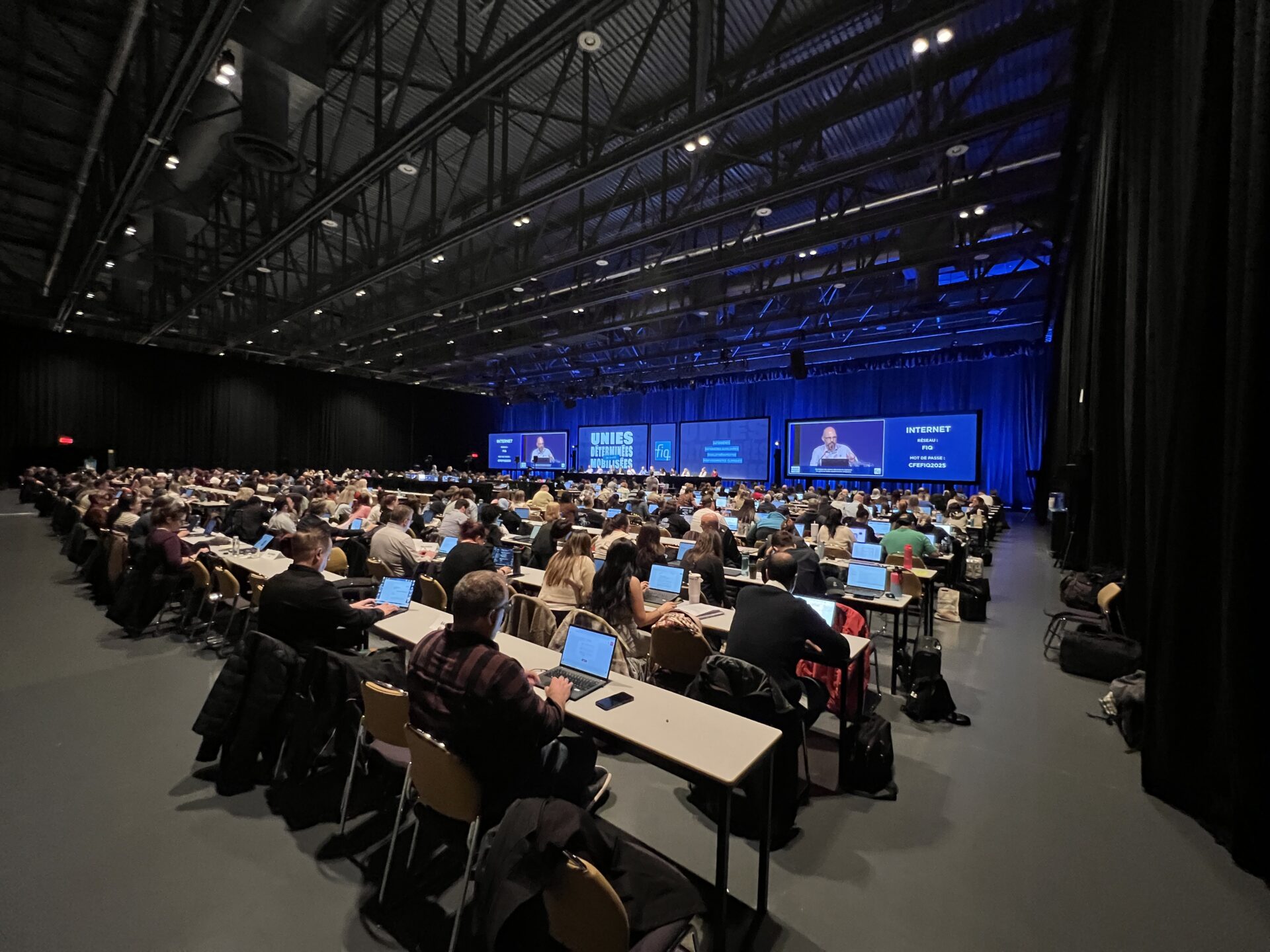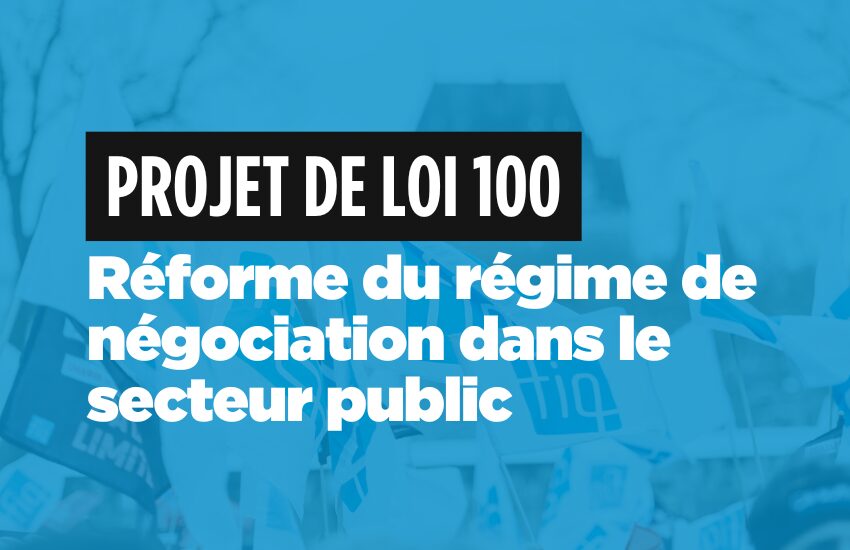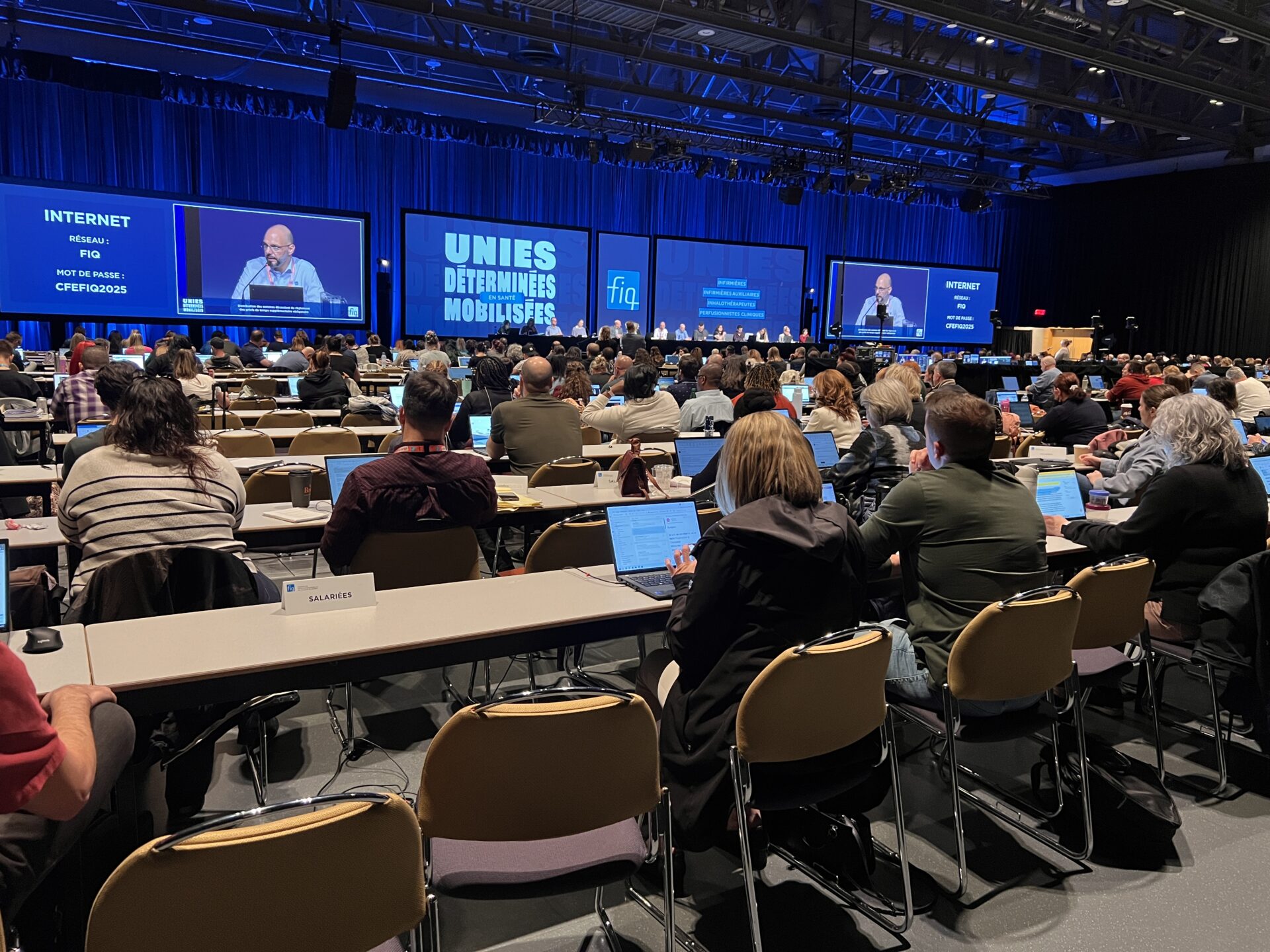
Special federal council May 21 and 22, 2025
Message from the President

On May 21 and 22, your delegates met at a special federal council to take stock of the last negotiations. This is never an easy task, but one that is necessary. For two days, we took a step back to analyze what we have been through collectively over the past 22 months: the victories, the challenges, the tensions… and above all, the strength we have shown in staying united.
This council made it clear that these negotiations, which have been significant in many ways, deserve a second analysis. With all the changes around Bill 100, which modernizes a negotiation process that is over 40 years old, there are still issues that need to be explored in greater depth, and another meeting will be necessary to complete the review.
During the council, we also discussed several current issues, including Bill 100, which puts an end to our work on Bill 15. This is a step in the right direction.
But there are also real concerns. Bill 101 dangerously weakens occupational health and safety protections in predominantly female sectors. The FIQ does not intend to remain silent on this matter.
Finally, as Healthcare Professional Month comes to a close, I would like to thank each and every one of you for your expertise, your commitment and your courage. You are the pillars of a network in tatters, and nothing we do at the FIQ would be possible without your collective strength.
In solidarity,
Julie Bouchard
FIQ President

Delegates take stock of the last provincial negotiations

Positive reception for the modernization of the public sector negotiation process

Labour law reform: a worrying bill!

MOT grievance settlement
Delegates take stock of the last provincial negotiations
Less than six months after the 2023-2028 provincial collective agreement was signed, FIQ delegates met to take stock of the last round of negotiations, marked in particular by the first healthcare professional strike in 25 years and the work related to the creation of Santé Québec. While it may be too early to evaluate the content and implementation of the new collective agreement, it was nevertheless an opportunity to review the context of the negotiations, the strategic framework, the process, the negotiation structure, and mobilization and communications.
The report presented was based on consultations with all those involved in the negotiations, with the aim of identifying findings and recommendations for improving the negotiation process within the organization. With the recent tabling of Bill 100, which, if adopted, will change the negotiation process in the public sector, the next round of negotiations is likely to take place in a very different context.
The FIQ will soon begin preparations for the next round of negotiations and will, among other things, roll out new training on the role of union representatives for the entire union structure during negotiations and on the rules of democratic and ethical operation within the Federation.
Positive reception for the modernization of the public sector negotiation process
At the special federal council on May 21 and 22, 2025, the delegation was able to review the broad outlines of Bill 100, which aims to modernize the negotiation process in the public sector through the Act respecting the negotiation and determination of conditions of employment requiring national coordination in particular in the public and parapublic sectors. Tabled a month earlier by Sonia LeBel, Treasury Board Chair, this bill was well received by the FIQ.
Bill 100 provides, among other things, for the reinstatement of the four job classes, a demand for which the FIQ had been lobbying hard and making numerous interventions that finally paid off.
It also includes bringing the negotiation of the 26 local matters back to the provincial level and broader recognition of seniority throughout the network, including institutions in Quebec’s Far North and private subsidized institutions. These are FIQ demands that have finally been heard.
The FIQ therefore considers this bill to be a step in the right direction and recognizes the major advances it represents. It submitted its brief on this subject during the public consultations on Bill 100 on May 27, 2025.
Labour law reform: a worrying bill!
The special federal council on May 21 and 22 helped delegates better understand the issues related to Bill 101, known as the Act to improve certain labour laws.
The Federation is concerned about at least two amendments to the current law:
- The differentiated application of the occupational health and safety regime for the health and education networks;
- The reduction of the functions of health and safety representatives and those of the health and safety committee.
With these measures, the government is exempting itself from the obligations it imposes on all other Quebec employers in terms of occupational health and safety prevention. It is important to note that these legislative amendments apply only to the health and education networks, where workplace accident rates are high and constantly changing.
The delegates therefore voted on a resolution to mobilize against this bill, which violates the rights of healthcare professionals to work in a healthy and safe environment.
Finally, the Federation requested to present a brief to the parliamentary committee on Bill 101 to explain its concerns for its members.
MOT grievance settlement
For several years, the FIQ and its members have denounced the use of mandatory overtime as a management method to compensate for poor resource planning and budget cuts. Our collective action resulted in $7 million being set aside to settle nearly 30,000 MOT grievances, as well as a statement of principle limiting MOT to urgent and exceptional situations within the collective agreement.
At the special federal council on May 21 and 22, your union representatives voted to allocate the entire amount received to compensate members who filed MOT grievances for the period prior to December 15, 2024, when the new collective agreement came into effect.
In the coming weeks, each union affiliated with the FIQ will receive a share of the money, based on its eligible MOT grievances. The unions will then distribute the funds to the members concerned and, since they are compensation for damages, the amounts will not be taxable.
Although MOT has decreased overall thanks to our ongoing efforts, employers continue to take advantage of healthcare professionals to shirk their management responsibilities. If your manager tries to impose MOT on you, it is essential that you report it to your local union. Your union will be able to support you in determining whether this is an abusive use of MOT using the tools that have been put in place since the new collective agreement was implemented. Our mobilization must continue in order to limit the use of MOT to truly urgent and exceptional situations.

